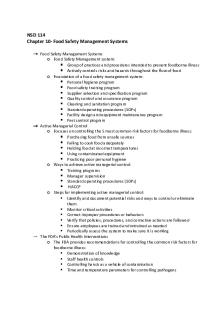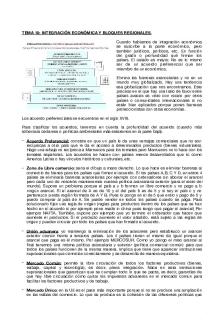Zipcar Deliverable - Lecture notes 10 PDF

| Title | Zipcar Deliverable - Lecture notes 10 |
|---|---|
| Author | Kajol Gupta |
| Course | Startup: An Introduction to Entrepreneurship |
| Institution | University of Virginia |
| Pages | 1 |
| File Size | 44.2 KB |
| File Type | |
| Total Downloads | 102 |
| Total Views | 129 |
Summary
Summary of the day's article
teacher - Bevin Etienne ...
Description
Kajol Gupta Zipcar Case Deliverable In 2000 Zipcar was a startup that was trying to provide convenience, ease of use, and hassle free ownership of a car for any time ranging between one hour to an entire week. The mission of the company was to emphasize convenience and cost savings, although they also had a pretty large environmentally friendly factor going for them as well. The idea was modeled after a system that one of the partners saw in Europe where hourly car rentals were in high demand for people who did not own a car in urban areas. There are a lot of things to consider when deciding how to put a dollar value on an hour’s worth of time for Zipcar back in 2000. I have many friends today who use Zipcar around grounds to travel to Richmond for the day or even go back home to Northern Virginia spontaneously for an emergency. In my opinion Zipcar is used when the trip is too long for an Uber or taxi to be efficient but also too short for an entire car rental to be efficient. I have seen it work best for that middle ground travel time between renting a full on car for the day and paying for an Uber ride. The cost of Zipcar is essential to ensuring that it maximizes its potential in this middle ground area. According to the case, when developing the business plan, Chase worked out the numbers to charge $1.5 per hour and $.40 Per mile. This is a relatively cheap hourly rate depending on how much people drive. The case cited that a car rental would be around $45 a day with possible other fees for mileage and such. If people are traveling a short distance, I believe that zip car is much more cost efficient, especially back in 2000. Today I have seen the average cost being around $7 or $8 per hour if people use Zipcar for a mid-distance travel. Accounting for inflation and low demand when Zipcar was a small startup I assume this cost would be even lower back in 2000. I would assume it would be worth around $5 to $6 per hour. This seems low but Zipcar requires people to be members which costs users an annual fee and a one-time initial membership fee. Back in 2000, these additional fees when initially singing up for zip car added up for people who were already trusting a very small startup company especially when competition existed in other forms (taxis, car rentals, etc). I think that from here (in 2017 and on) the cost of Zipcar can and will increase in value (per hour) as the demand increases and as economics works and inflation goes up. Overall I think a good way to gauge where Zipcar falls is to find the in between of what one would pay using a taxi or an Uber and put Zipcar in the middle....
Similar Free PDFs

Lecture notes, lecture 10
- 5 Pages

Whimis Notes (Week 4 Deliverable)
- 13 Pages

241lecture 10 - Lecture notes 10
- 3 Pages

Chapter 10 - Lecture notes 10
- 17 Pages

Lab 10 - Lecture notes 10
- 3 Pages

Lesson 10 - Lecture notes 10
- 24 Pages

Chapter 10 - Lecture notes 10
- 9 Pages

Chapter 10 - lecture 10 NOTES
- 14 Pages

Inles 10 - Lecture notes 10
- 6 Pages

LecciÓn 10 - Lecture notes 10
- 8 Pages

Tema 10 - Lecture notes 10
- 10 Pages

Week 10 - Lecture notes 10
- 14 Pages

Lecture notes, lecture 7-10
- 5 Pages

Notes - Lecture - Chapter 10
- 3 Pages
Popular Institutions
- Tinajero National High School - Annex
- Politeknik Caltex Riau
- Yokohama City University
- SGT University
- University of Al-Qadisiyah
- Divine Word College of Vigan
- Techniek College Rotterdam
- Universidade de Santiago
- Universiti Teknologi MARA Cawangan Johor Kampus Pasir Gudang
- Poltekkes Kemenkes Yogyakarta
- Baguio City National High School
- Colegio san marcos
- preparatoria uno
- Centro de Bachillerato Tecnológico Industrial y de Servicios No. 107
- Dalian Maritime University
- Quang Trung Secondary School
- Colegio Tecnológico en Informática
- Corporación Regional de Educación Superior
- Grupo CEDVA
- Dar Al Uloom University
- Centro de Estudios Preuniversitarios de la Universidad Nacional de Ingeniería
- 上智大学
- Aakash International School, Nuna Majara
- San Felipe Neri Catholic School
- Kang Chiao International School - New Taipei City
- Misamis Occidental National High School
- Institución Educativa Escuela Normal Juan Ladrilleros
- Kolehiyo ng Pantukan
- Batanes State College
- Instituto Continental
- Sekolah Menengah Kejuruan Kesehatan Kaltara (Tarakan)
- Colegio de La Inmaculada Concepcion - Cebu

